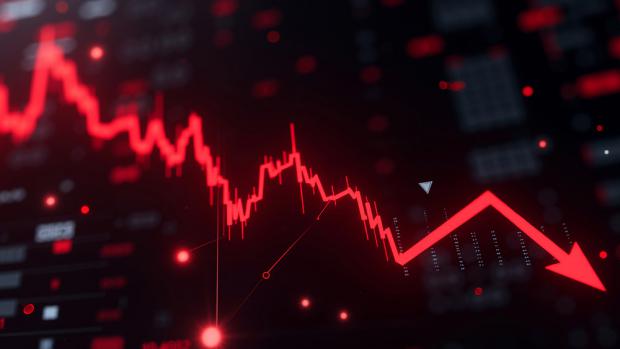
Breaking News
 AI Data Centers Build Their Own Power Plants Because the Grid Isn't Ready
AI Data Centers Build Their Own Power Plants Because the Grid Isn't Ready
 Tucker Responds to the Text Message Scandals and What It Reveals About the Dark Desires of the Left
Tucker Responds to the Text Message Scandals and What It Reveals About the Dark Desires of the Left
 AI stock frenzy sparks bubble fears as valuations skyrocket
AI stock frenzy sparks bubble fears as valuations skyrocket
 States embrace goldbacks amid dollar decline, offering antifragile currency against centralized...
States embrace goldbacks amid dollar decline, offering antifragile currency against centralized...
Top Tech News
 3D Printed Aluminum Alloy Sets Strength Record on Path to Lighter Aircraft Systems
3D Printed Aluminum Alloy Sets Strength Record on Path to Lighter Aircraft Systems
 Big Brother just got an upgrade.
Big Brother just got an upgrade.
SEMI-NEWS/SEMI-SATIRE: October 12, 2025 Edition
 Stem Cell Breakthrough for People with Parkinson's
Stem Cell Breakthrough for People with Parkinson's
 Linux Will Work For You. Time to Dump Windows 10. And Don't Bother with Windows 11
Linux Will Work For You. Time to Dump Windows 10. And Don't Bother with Windows 11
 XAI Using $18 Billion to Get 300,000 More Nvidia B200 Chips
XAI Using $18 Billion to Get 300,000 More Nvidia B200 Chips
 Immortal Monkeys? Not Quite, But Scientists Just Reversed Aging With 'Super' Stem Cells
Immortal Monkeys? Not Quite, But Scientists Just Reversed Aging With 'Super' Stem Cells
 ICE To Buy Tool That Tracks Locations Of Hundreds Of Millions Of Phones Every Day
ICE To Buy Tool That Tracks Locations Of Hundreds Of Millions Of Phones Every Day
 Yixiang 16kWh Battery For $1,920!? New Design!
Yixiang 16kWh Battery For $1,920!? New Design!
 Find a COMPATIBLE Linux Computer for $200+: Roadmap to Linux. Part 1
Find a COMPATIBLE Linux Computer for $200+: Roadmap to Linux. Part 1
AI stock frenzy sparks bubble fears as valuations skyrocket

Nvidia, once a niche chipmaker, now boasts a staggering $4.5 trillion valuation, while OpenAI's deals with tech giants like Microsoft, AMD and Oracle raise concerns about financial circularity. With industry leaders warning of overinvestment and economists comparing the frenzy to past bubbles, the question looms: Is AI the next dot-com bust waiting to happen?
The AI stock surge: Euphoria or excess?
Since ChatGPT's 2022 debut, AI has dominated markets. Nvidia's chips power the AI revolution, fueling its meteoric rise. Microsoft, Apple, Amazon, Google and Meta have also seen explosive growth, collectively driving 80% of S&P 500 gains. Oracle's stock soared 40% in a single day after securing OpenAI contracts—a sign of investor euphoria.
But skepticism mounts. OpenAI CEO Sam Altman admits investors are "overexcited," while Amazon founder Jeff Bezos warns of an "industrial bubble." Bank of England analysts caution that markets are "exposed" if AI optimism falters. The parallels to the late-1990s dot-com bubble—when vendor financing inflated valuations before a brutal crash—are hard to ignore.
Circular deals and financial engineering
Recent AI financing arrangements have drawn scrutiny for their self-reinforcing nature:
Nvidia invests $100B in OpenAI, which then builds data centers using Nvidia chips.
OpenAI buys AMD chips, taking a potential 10% stake in the company.
Microsoft funds OpenAI while also relying on Nvidia-powered cloud services.
Critics call this "vendor financing"—a tactic used during the dot-com bubble to artificially inflate demand. Goldman Sachs acknowledges "elements of investor behavior" mirror past bubbles but argues today's AI boom is backed by real profits—for now.
The bubble debate: Optimism vs. caution
Proponents insist AI's transformative potential justifies the spending. OpenAI's revenue growth is unprecedented, and Altman argues the industry is still undervalued. Federal Reserve officials even suggest this could be a "good bubble," driving innovation despite financial risks.
Yet MIT research found that 95% of AI initiatives fail to deliver returns, despite $30–40B in spending. Venture capitalist Alan Patricof warns, "The losses will be pretty significant." Meanwhile, AI's impact on jobs remains uncertain—Anthropic's CEO predicts mass white-collar layoffs, while McKinsey sees AI as a productivity booster, not a replacement.



